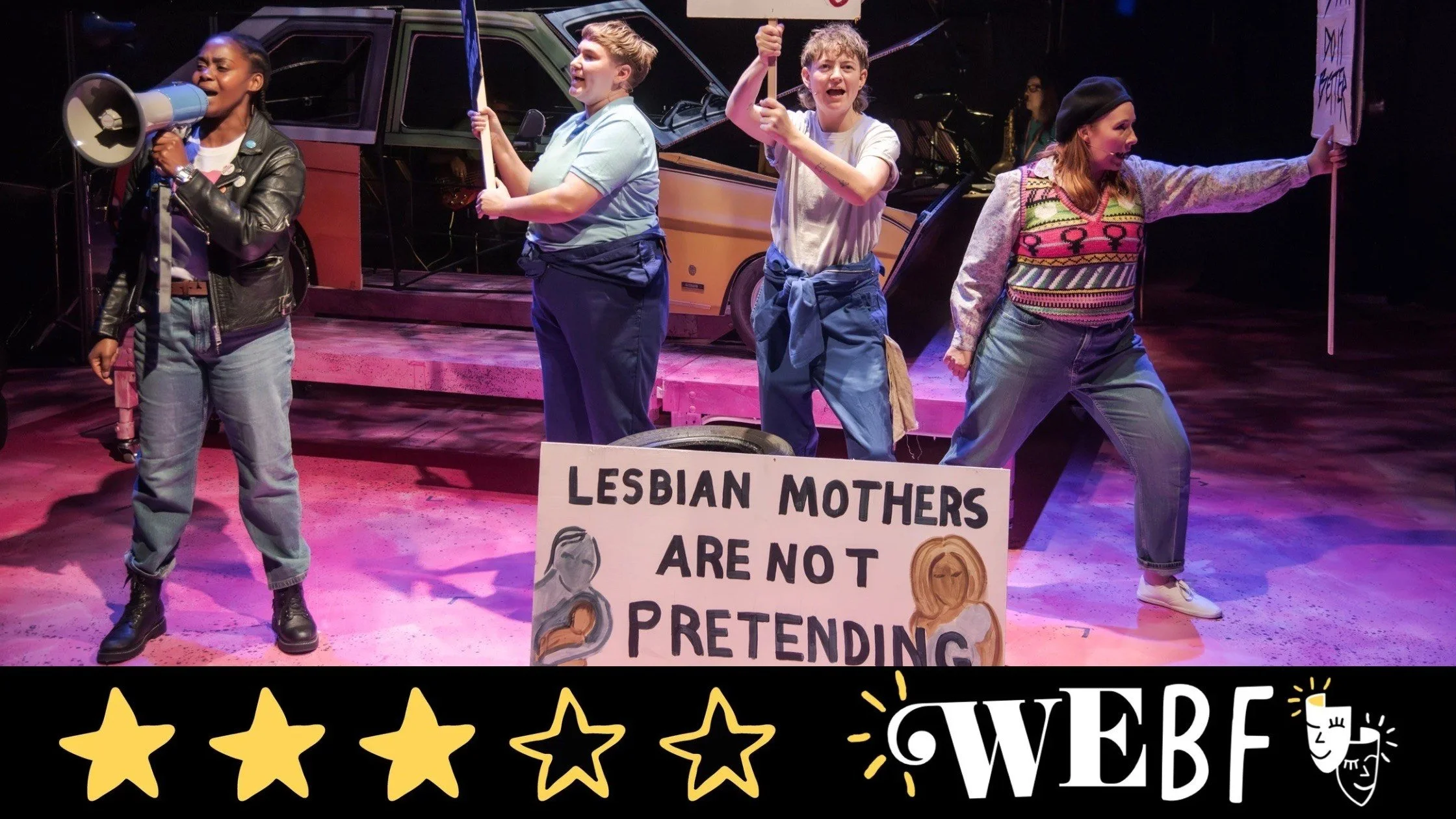Review: GWENDA’S GARAGE, Tanya Moiseiwitsch Playhouse
Photo credit: Chris Saunders
Gwenda’s Garage is a real garage in Sheffield, named after pioneering racing driver Gwenda Stewart. In the 1980s, the garage became a community hub for female activists against a backdrop of a patriarchal engineering sector, steelworkers and miners strikes, and the introduction of Section 28 by the Conservative, attacking LGBTQIA+ rights.
The musical isn’t and entirely true story but it follows a group of women who are likely to have been part of this community. The characters that writer Nicky Hallett has created are relatable, and it’s empowering to see their journeys. However, a more consistent approach throughout the show as to when direct address and narration are used would help. The show explores multiple themes, such as LGBTQIA+ rights, abortion, sexism and racism, that still seem worryingly relatable despite being several decades later.
Val Regan’s music is catchy but many of the lyrics by Regan and Hallett are unimaginative and repetitive and don’t seem to progress the story or the characters. The opening and closing numbers of each act are fantastic though, and there is the potential for something great here. The show does feel as though as it is missing some powerhouse ballads though.
Jelena Budimir directs the production, making good use of the intimate space and leading her cast in developing great on stage relationships. Sarah Booth’s set design is fairly simple but fits the space well and Becky Graham’s costumes add a nice pop of colour – her costumes for the character of Feona bring to life her story effectively as well.
Eva Scott’s Carol leads the group of women at the garage and she has a great stage presence. Her rapport with others in the cast is lovely, particularly with Lucy Mackay’s Dipstick. Mackay is a joy to watch, bringing a huge amount of youthful energy to the production. Sia Kiwa and Nancy Brabin-Platt have lovely chemistry as Terry and Bev, portraying the ups and downs of lesbian relationships amidst a very unaccepting society.
Georgina Coram is the stand out of this production as Feona, the character that goes on the biggest journey. A southerner who moves to Sheffield for work, she becomes politicised as she meets and becomes friends with this diverse group of women, discovering her true self rather than the self that allows her to be accepted and liked by others.
Whilst Gwenda’s Garage isn’t perfect, it is enjoyable and empowering. It has the potential to be something great and we look forward to seeing how the show continues to evolve and develop.
*** Three stars
Reviewed by: Jacob Bush

